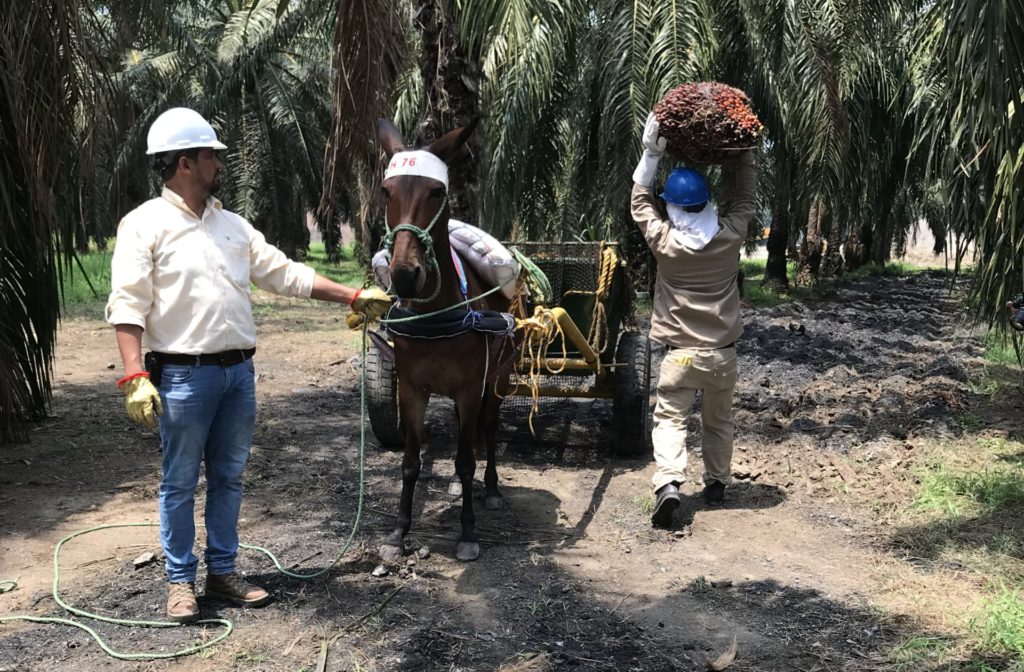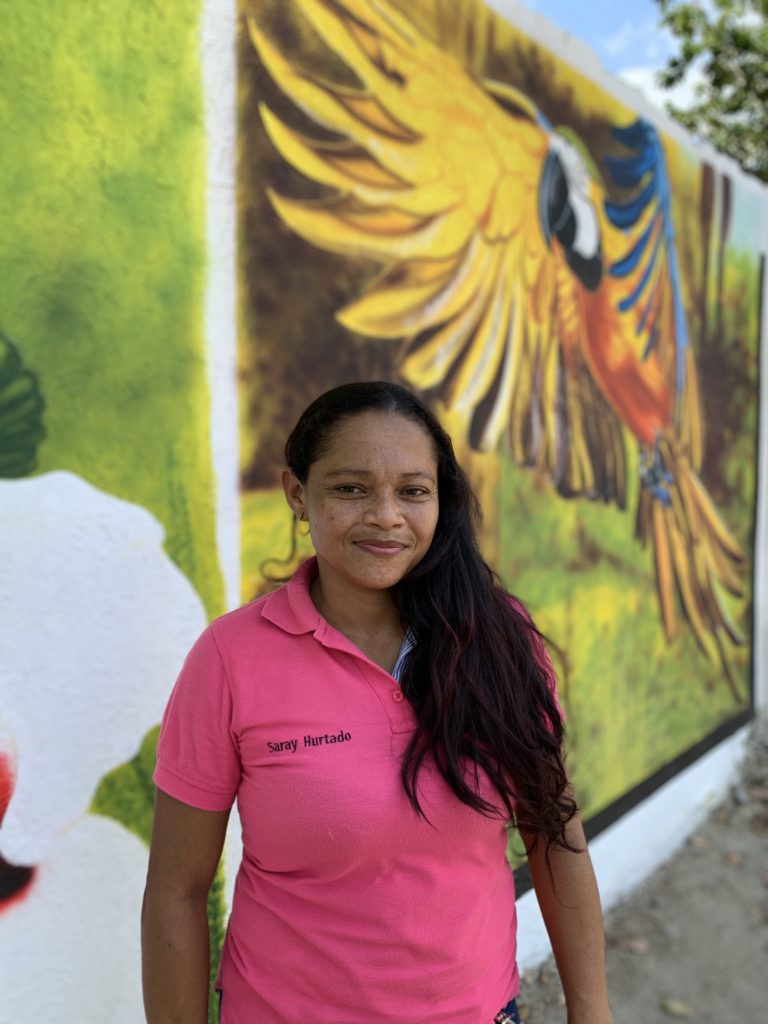
Palma Futuro’s Community Circles help to convene members of communities surrounded by the palm oil industry to identify and explore solutions to common challenges. Palma Futuro also provides Community Circle leaders with the space to discuss these issues with private sector partners in the palm oil industry. This month, we are profiling one of the Community Circle leaders and her perspective on the barriers to preventing child labor and ensuring access to education in her community.
Saray grew up on an oil palm farm, where her father worked on the plantation and her mother ran the casino (kitchen). From a very young age, Saray and her siblings faced the reality that their parents did not have the resources to help them continue their education and that they would need to pay for their own food, rent, transportation, and other necessities if they hoped to do so. Dreaming of becoming a nurse, Saray worked and studied simultaneously to graduate high school at 17 and move to the regional capital, Santa Marta, where she worked in a family home to pay for nursing school.
Despite her progress towards a degree, when Saray started a family, she was not financially secure enough to raise her children in the city. She moved back to her home village of Tucurinca (Zona Bananera municipality, Magdalena, Colombia) to be near relatives and have a lower cost of living. However, because there are no health centers near Tucurinca, she had to give up her dream of becoming a nurse. Smallholder farming (oil palm, banana, and rice) dominates the local economy, which has few employment opportunities for women. Saray’s husband has supported the family for the past nine years as a mechanic welder on local plantations, but the family now faces some of the same difficult choices Saray experienced growing up.
Challenges of Combatting Child Labor
In 2018, as many as 267,000 children were counted in the labor force in Colombia, and while child labor almost always arises from deep financial need, working rarely helps children escape poverty. More often, it reinforces long-term insecurity by depriving children of education and schooling and reduces access to opportunities that would allow them to break the cycle of poverty and better their lives.
Saray does not want her children to share her experience. She and her husband strive to help their three children keep up with school and out of work.
“I dream of living in Santa Marta and seeing my children become professionals. My purpose is to provide them with the possibilities that I did not have at the time, so that they can secure a more stable and prosperous future.”
Saray Hurtado
In Tucurinca and many other remote communities in Colombia, there are many challenges to maintaining that dream. Palma Futuro has engaged communities in which children must travel miles to school with no public transportation, schools that are in dire disrepair and present hazards to student health and safety, schools that have a single teacher for all primary grades, and communities with no dedicated school whose only education opportunities come from a teacher who rotates through multiple communities in the region. There are also limited opportunities for students to continue their education and few available career paths near home, so regular school attendance can seem pointless to the many students whose families cannot afford to help them move to a city. Especially in these cases, joining the workforce as early as possible often seems like the most rational choice.
These challenges deepened when all schools in Colombia went to 100% remote learning for nearly two full years during the COVID-19 pandemic. Power failures, poor internet access, and costs for cellphone data made completing schoolwork very difficult. Saray recounted how this impacted her family: “They are three children who are different ages, in different grades and have different homework, and yet we only have one cellphone to cover everything.” Relative to others in the community, even Saray’s one phone is an advantage–in addition to supporting her own children’s schooling, she also helps several others with her phone.
Palma Futuro’s Community Circles

Barriers to education and a lack of job opportunities are common throughout the region, but parents in these communities know what they need to keep their children in school and out of work until adulthood. Through Community Circles, Palma Futuro is helping communities like Saray’s identify the underlying issues that lead to abuses like child and forced labor, and brainstorm solutions to those challenges. As a Community Circle leader, Saray is leading her neighbors to develop a unified voice and identify concrete actions they can take on their own and through engagement with palm oil companies.
To date, the Palma Futuro team has established 17 Community Circles in Colombia, all of which are actively working to identify action ideas. Some action ideas discussed in the circles include:
- Engaging with palm oil industry employers to incentivize academic success and graduation through scholarships, work-study opportunities, or job placement programs for young people of legal working age. These types of programs would help mitigate the risk of child labor in supply chains and help companies develop local sources of skilled workers.
- Advocating to local government or other institutions for services to help keep kids in school, such as free transportation and access to public internet and computers.
- Strategies to increase economic opportunities in the community. For example, one circle hopes to launch a women’s entrepreneurship and business support network to help address the severe lack job opportunities for women in their area.
At the same time, Palma Futuro is working to ensure their voices will be heard and accepted by the large palm oil companies that source from and are hugely influential in these communities. The project is working deeply with palm oil conglomerates in the region, educating and training them to conduct detailed risk assessments and stakeholder engagement in their supply chains.
Community Circles are one example of how Palma Futuro works from multiple angles to reduce the risks of child labor and implement robust and sustainable Social Compliance Systems among private sector partners in the Colombian and Ecuadorian palm oil industries. This includes increasing understanding of responsible labor practices and the risks of child labor and forced labor among palm oil industry employers (both large and small) through activities like labor compliance and management systems assessments, technical assistance to develop customized improvement plans, and ongoing training on implementing and managing effective Social Compliance Systems. This work is part of Palma Futuro’s broader mission to enable a more ethical and sustainable palm oil industry in Colombia and beyond.

Funding is provided by the United States Department of Labor under cooperative agreement number IL-32820-18-75-K. 100 percent of the total costs of the project is financed with federal funds, for a total of 6,000,000 US dollars. This material does not necessarily reflect the views or policies of the United States Department of Labor, nor does mention of trade names, commercial products, or organizations imply endorsement by the United States Government.
